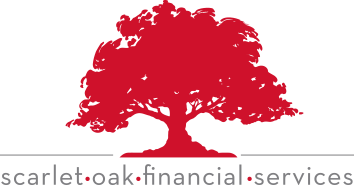What is asset allocation?
Investment in different types of assets
Asset allocation is an approach to investing. It involves spreading your investments over different asset categories, such as equities, cash or cash-alternative investments, bond, real estate, foreign securities, and possibly even precious metals or collectibles. Your asset mix, the specific investments within each category, and the timing of your investments all play a part in your overall return.
Different categories have different returns
The principle of asset allocation is that over time, different broad categories of investments have shown different rates of return and levels of price volatility. By diversifying your investments over various categories, you spread your risk and theoretically maximize your return. Generally, downturns in one investment class may be tempered or even offset by favorable returns in another asset class. (However, diversification alone cannot guarantee a profit or ensure against a loss.)
General note on asset allocation
Generally, the higher the potential return on an investment, the higher the risk. The longer your investment horizon, the more risk you may generally be able to assume in the short run by allocating more of your investment to higher-risk (aggressive) assets. When your investment horizon is longer term, you have time to ride out short-term fluctuations. A shorter time frame usually requires a more conservative approach. You may want to reallocate more of your investments into lower-risk asset categories as the time approaches to convert your investments to cash for your particular goal.
As with all investing, you expose some or all your invested money to loss for the chance to earn a higher profit. Investment gains hinge on an ongoing and long-term investment strategy that uses your risk tolerance and diversification to mitigate some risks. Even with these in place, you are exposing your money to loss.
Why consider changing your asset allocations?
The major reason you engaged in asset allocation may have been to achieve certain investment objectives. As your life changes, these objectives are likely to change, and it makes sense to shift your allocations. Numerous personal factors can cause your objective or time horizon to change. Outside factors may lead you to reallocate your investments, as well.
Respond to changes in your life or goals
The asset allocation you establish today may not be appropriate for goals that you may establish later on. For instance, you may have established allocations based on the long-term objective of investing for your retirement, which you expected to occur in 20 years. But perhaps you were not married when you set your investment strategy for that objective, and now you are, or maybe you are now expecting a child. Chances are pretty good that your investment objective has changed somewhat and may now include intermediate-range goals such as funding private school tuition. In order to meet your newly modified objective, you may want to reallocate your investments.
Adapt to changes in your planning horizon
You may have set your asset allocations with the initial objective of sending your child to college in 12 years. Time has passed, and your child will be entering college in 2 years. You should probably change your allocations based on the current time horizon. That may mean moving funds from higher-risk to lower-risk investments to ensure that the needed money will be available. Imagine the stress you might feel if the tuition invoice arrives while you are waiting for that risky stock investment to rebound from the tumble it took three months earlier. Imagine the stress that can be avoided by planning ahead and monitoring and rebalancing your allocations as your planning horizon changes.
Our team is here to collaborate with you on evaluating your current asset allocation and providing tailored recommendations based on your unique situation. We strive to help you achieve your investment objectives while managing risk in a manner that aligns with your comfort level.
Scarlet Oak Financial Services can be reached at 800.871.1219 or contact us here. Click here to sign up for our weekly newsletter with the latest economic news.
Source:
Broadridge Investor Communication Solutions, Inc. prepared this material for use by Scarlet Oak Financial Services.
Broadridge Investor Communication Solutions, Inc. does not provide investment, tax, legal, or retirement advice or recommendations. The information presented here is not specific to any individual’s personal circumstances. To the extent that this material concerns tax matters, it is not intended or written to be used, and cannot be used, by a taxpayer for the purpose of avoiding penalties that may be imposed by law. Each taxpayer should seek independent advice from a tax professional based on individual circumstances. Scarlet Oak Financial Services provide these materials for general information and educational purposes based upon publicly available information from sources believed to be reliable — we cannot assure the accuracy or completeness of these materials. The information in these materials may change at any time and without notice.



